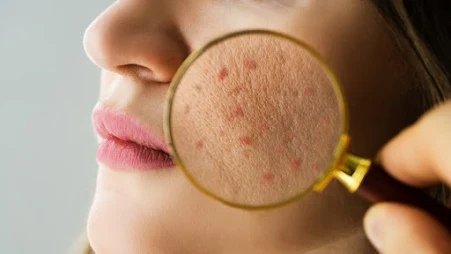Battling Acne: Understanding the Causes, Types, and Effective Solutions
Acne is a common skin condition that affects millions of people worldwide. While often associated with teenagers, it can persist well into adulthood, causing physical and emotional distress. This article aims to shed light on acne problems by exploring its causes, the different types encountered, and suggesting effective solutions for managing this persistent skin issue.
Understanding the Causes
Acne occurs when hair follicles become clogged with oils, dead skin cells, and bacteria. Several factors contribute to its development:
Hormonal Changes: The most common trigger for acne is hormonal fluctuations, often experienced during puberty, menstrual cycles, pregnancy, or menopause. Hormones stimulate the sebaceous glands to produce excess oil, leading to pore blockages and breakouts.
Hereditary Factors: Genetics play a significant role in the occurrence of acne. If one or both of your parents had acne, chances are you may also battle with it.
Poor Skincare Habits: Inappropriate skincare routines, such as using harsh or comedogenic products, can worsen acne. Neglecting to cleanse the face properly, especially after sweating or wearing makeup for extended periods, can also contribute to breakouts.
Types of Acne
Acne can present in various forms and severity levels. Here are some common types:
Whiteheads and Blackheads: Also known as comedones, these are non-inflamed clogged pores. Whiteheads occur when the clogged pore is closed, while blackheads appear when the pore remains open.
Papules and Pustules: These inflamed acne lesions appear as red, raised bumps on the skin. Papules are typically small, while pustules contain pus and may be larger in size.
Cysts and Nodules: Considered severe forms of acne, cysts and nodules form deep within the skin. They are painful, large, and often lead to scarring. Professional treatment is often needed to address these types of acne.
Effective Solutions for Acne Problems
While no single solution works for everyone, there are several effective strategies for managing acne:
Skincare Routine: Establishing a gentle and consistent skincare routine is crucial. Cleanse the face twice daily with a mild cleanser, followed by an oil-free moisturizer. Avoid scrubbing harshly, as it can irritate the skin and worsen acne.
Topical Treatments: Over-the-counter acne products containing benzoyl peroxide, salicylic acid, or sulfur can be effective in clearing mild acne. However, if acne persists or is severe, consult a dermatologist for prescription-strength treatments.
Diet and Lifestyle: Maintain a healthy diet by consuming nutrient-rich foods and avoiding processed or greasy food, which may exacerbate acne. Regular exercise, stress management techniques, and adequate sleep can also help control hormonal imbalances that contribute to acne.
Professional Treatments: For severe acne, dermatologists may recommend oral medications, such as antibiotics or isotretinoin, to control inflammation and reduce oil production. Additionally, procedures like chemical peels, microdermabrasion, or laser therapy can aid in managing acne and minimizing scarring.
Conclusion
Acne problems can be distressing and affect self-esteem, but with proper care and understanding, they can be managed effectively. By comprehending the causes, recognizing the different types of acne, and adopting suitable skincare practices, individuals can take control of their skin health. Remember, a consistent routine, healthy lifestyle choices, and seeking professional advice when needed are vital steps in achieving clearer, healthier skin.





